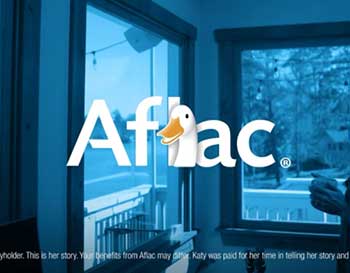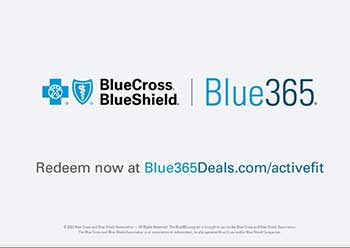When it comes to insurance, Aflac and Blue Cross Blue Shield are two big names that often come up. Both offer policies that can supplement your health insurance and provide cash benefits when life happens.
But there are some key differences between Aflac and Blue Cross Blue Shield that are important to understand.
A Brief Comparison Table
| Feature | Aflac | Blue Cross Blue Shield |
| Type of Coverage | Supplemental insurance, pays cash benefits | Major medical health insurance |
| Services Covered | Specific situations, injuries, hospital stays | Comprehensive health services |
| Cost Sharing | No deductibles or copays generally | Plans often have deductibles, copays, coinsurance |
| Provider Network | No networks, see any licensed provider | Uses provider networks, out-of-network costs more |
| Prescription Drugs | Not covered | Often covered benefit |
| Plan Options | Individual and group policies | Individual, employer group, Medicare Advantage |
| Enrollment Period | Open enrollment year round | Limited annual open enrollment period |
| Prescription Drug Coverage | Not covered | Many plans include prescription coverage |
| Preventive Care | Not covered | Covered at no out-of-pocket cost |
Overview Of Aflac
Aflac is best known for its supplemental insurance policies. These are policies that pay cash benefits directly to you when you experience a covered event, like an accident, critical illness, or hospital stay.
The cash benefits are paid regardless of any other insurance you may have. You can use the cash however you see fit, whether it’s to help cover out-of-pocket medical costs, the rent, groceries, or anything else.
Some of the most popular Aflac policies include:

- Accident insurance – Pays benefits for injuries from covered accidents. This can include injuries sustained from motor vehicle accidents, while working around the home, and more. Benefits help cover expenses like hospital stays, physical therapy, transportation, and lodging.
- Critical illness insurance – Pays a lump sum benefit if you are diagnosed with a covered critical illness like cancer, stroke, heart attack, kidney failure, and more. This money can be used to help pay medical bills or for any other purpose.
- Hospital indemnity insurance – Provides a daily benefit payment for hospital confinement and recovery. You receive cash benefits for each day you are in the hospital to help cover costs.
Aflac policies are sold as individual policies just for you. They are also available as group policies through employers. Many people get Aflac insurance in addition to a comprehensive major medical plan to help fill coverage gaps and pay for out-of-pocket expenses.
Overview Of Blue Cross Blue Shield
Blue Cross Blue Shield is a major medical insurance provider. They offer health insurance plans through employers and also have plans available to individuals and families.
Some key things to know about Blue Cross Blue Shield health insurance:

- Comprehensive coverage – Blue Cross Blue Shield plans must follow Affordable Care Act standards and cover essential health benefits like preventive care, doctor visits, hospitalization, prescription drugs, maternity care, mental health services, and more.
- Nationwide network – Blue Cross Blue Shield plans often provide access to one of the largest doctor and hospital networks in the U.S. This makes it easier to find in-network providers.
- Choices – Blue Cross Blue Shield offers different plan options like HMOs, PPOs, EPOs, and POS plans. This allows you to find a plan that fits your budget and coverage preferences. Costs and coverage will vary between plan types.
- BlueCard program – This program allows members who are traveling or need medical care outside of their plan’s service area to access care from other participating Blue Cross Blue Shield providers nationwide.
- Wellness programs – Many Blue Cross Blue Shield plans offer special wellness programs, discounts, and incentives for completing health actions like getting a screening test, joining a gym, or using a tobacco cessation program.
Also Read: Comparison Between Globe Life And Aflac.
Key Differences Between Aflac And Blue Cross Blue Shield
Now that we’ve covered the basics of what each company offers, let’s compare some of the key differences between Aflac and Blue Cross Blue Shield:
Type of Coverage
- Aflac: Supplemental insurance that pays cash benefits for specific situations like injuries, hospital stays, or critical illnesses. Aflac policies pay regardless of other insurance you have.
- Blue Cross Blue Shield: Major medical insurance that covers a wide range of health services to diagnose and treat illness and injury. BCBS meets minimum essential coverage requirements under the ACA.
What’s Covered
- Aflac: Covers defined situations, events, treatments, and services depending on policy type. Policies may cover things like broken bones from accidents, hospital stays, ambulance transportation, specific critical illnesses, and more.
- Blue Cross Blue Shield: Covers essential health benefits in all plans including outpatient care, emergency services, hospitalization, maternity care, mental health services, prescription drugs, preventive care, pediatric services, and more. The exact coverage details will vary by plan.
Cost Sharing
- Aflac: Most policies pay a cash benefit directly to you and do not require deductibles or copays. Benefit amounts are fixed.
- Blue Cross Blue Shield: Plans often have deductibles, copays, coinsurance, and out-of-pocket maximums that require you to share costs. You pay your share to providers/health services.
Provider Networks
- Aflac: Does not use provider networks. You can see any licensed provider for covered care.
- Blue Cross Blue Shield: Uses extensive provider networks. Seeing out-of-network providers costs more.
Plan Options
- Aflac: Offers individual policies. Employers can also offer group Aflac plans as a voluntary benefit.
- Blue Cross Blue Shield: Offers individual plans as well as group plans through employers. Also has Medicare Advantage plans.
Enrollment Periods
- Aflac: Policies can be purchased year-round. There is no limited enrollment period.
- Blue Cross Blue Shield: Individual major medical plans must be purchased during annual open enrollment periods or special enrollment periods triggered by qualifying life events.
Prescription Drug Coverage
- Aflac: Does not provide prescription drug coverage.
- Blue Cross Blue Shield: Many BCBS plans cover prescription drugs as an included benefit or have optional prescription drug coverage available.
Pros And Cons Of Aflac
Pros
- Cash benefits help fill coverage gaps and pay for healthcare/living expenses
- Benefits paid directly to you; use money however you want
- Most policies have no networks so you can see any provider
- Easy to get – no limited enrollment periods
- Continue coverage when switching jobs or retiring
- Group rates available through employers
Potential Cons
- Limited per-condition payouts; may not cover full cost of care
- Does not coordinate benefits or cover deductibles like major medical insurance
- No coverage for routine preventive medical care
- Benefits likely taxable as income
Also watch this!
Pros And Cons Of Blue Cross Blue Shield
Pros
- Meets ACA coverage standards and minimum essential coverage requirements
- Covers a wide range of health services – doctor visits, hospital stays, prescriptions, etc.
- Access to large provider network and BlueCard program provides coverage while traveling
- Many plans include prescription drug coverage
- Preventive care covered at no out-of-pocket cost
Potential Cons
- Premiums can be expensive, especially for low deductible plans
- Plans have deductibles, copays, and coinsurance that add extra costs
- Limited provider network – no coverage out-of-network without higher costs
- Need to enroll during open or special enrollment periods
Also Read: Comparison Between Healthfirst And UnitedHealthcare.
Frequently Asked Questions (FAQ)
No, Aflac policies are meant to supplement comprehensive major medical coverage, not replace health insurance entirely. Aflac does not meet minimum essential coverage requirements on its own.
Aflac disadvantages include limited policy benefits that may not fully cover treatment costs, lack of routine preventive care coverage, and benefits being taxable as income. There are also no provider networks and limited/no prescription drug coverage.
Aflac pays cash benefits directly to you instead of paying for provider services. Policies have no networks, cover defined events/situations, and benefits do not change based on income or health factors like major medical insurance.
Yes, Aflac is a reputable company known for supplemental insurance policies that provide cash benefits for injuries, critical illnesses, hospital stays, and other health events. It has strong financial ratings but offers limited medical coverage.
Also Read: Comparison Between New York Life And Transamerica.
The Bottom Line
Aflac and Blue Cross Blue Shield serve different but complementary insurance purposes. Aflac provides affordable supplemental policies that pay cash to help cover expenses when serious health situations occur. Blue Cross Blue Shield offers major medical insurance that covers essential health services to keep you well and care for you when ill or injured.
For comprehensive health coverage, it’s hard to beat major medical insurance from leading insurers like Blue Cross Blue Shield. But combining that with supplemental coverage from Aflac can provide an added layer of financial protection when you need it most.
Talk to an insurance agent to discuss how Aflac and Blue Cross Blue Shield policies work together to meet your specific insurance needs and budget.
